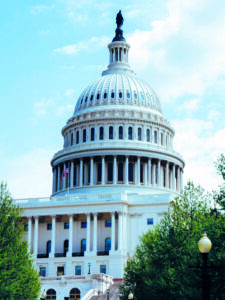
When it comes to a presidential administration’s impact on our healthcare system, personnel is policy. So, a presidential transition is always a critical juncture for the direction of our federal government’s healthcare policy. That is especially the case for a transition like this one, where the incoming administration differs from the outgoing administration on so many fundamental issues.
The makeup of the incoming administration’s healthcare policy team, from the top down, will be largely dependent on the Senate’s advice and consent power. So, it will be important for the SVS and its members to advocate and inform senators proactively about the potential effects of presidential nominations on the practice.
The secretary of health and human services (HHS) nominee is likely to be the subject of much public attention in this space. To the extent that he has any relevant experience for the job, Robert F. Kennedy, Jr., can be described as an advocate around issues that fall more into the Food and Drug Administration (FDA) jurisdiction than issues directly affecting doctors. Kennedy “has been met with mixed feelings on Capitol Hill.” His nomination will draw national attention, and the final vote should be closely contested, as Senate Republicans have been reluctant to express support thus far.
Outside of Kennedy, the next-most senior nominee to watch for vascular surgeons will be Dr. Mehmet Oz, the expected nominee to lead the Centers for Medicare & Medicaid Services (CMS). Oz similarly lacks relevant experience for this job. However, he does have more relevant publicly stated opinions, having made a serious run for the Senate in Pennsylvania in 2022. He has touted his support for Medicare Advantage and has generally talked about running the service more like a business. Oz’s nomination will also be closely contested, though he has some solid support among key Senate Republicans and even has been met with open minds among some Senate Democrats.
Whether it’s Kennedy, Oz or any of the other incoming Senate confirmation fights at HHS, vascular surgeons have a voice and should be heard. SVS members and supporters can get involved in the SVS’s formal advocacy efforts and reach out to their Senators via constituent feedback, letters to the editor, and staying informed and active.
It is important to remember that it’s not just about the yes-or-no vote to confirm, though that does matter. The Senate’s advice and consent role is also about asking tough questions of these nominees, putting them on the record, probing them, educating them, and fostering a transparent policy-driven process. Senate offices consider their constituents’ opinions, so vascular surgeons need to be engaged now more than ever.
Dylan Lopez is the SVS advocacy and public affairs manager.












